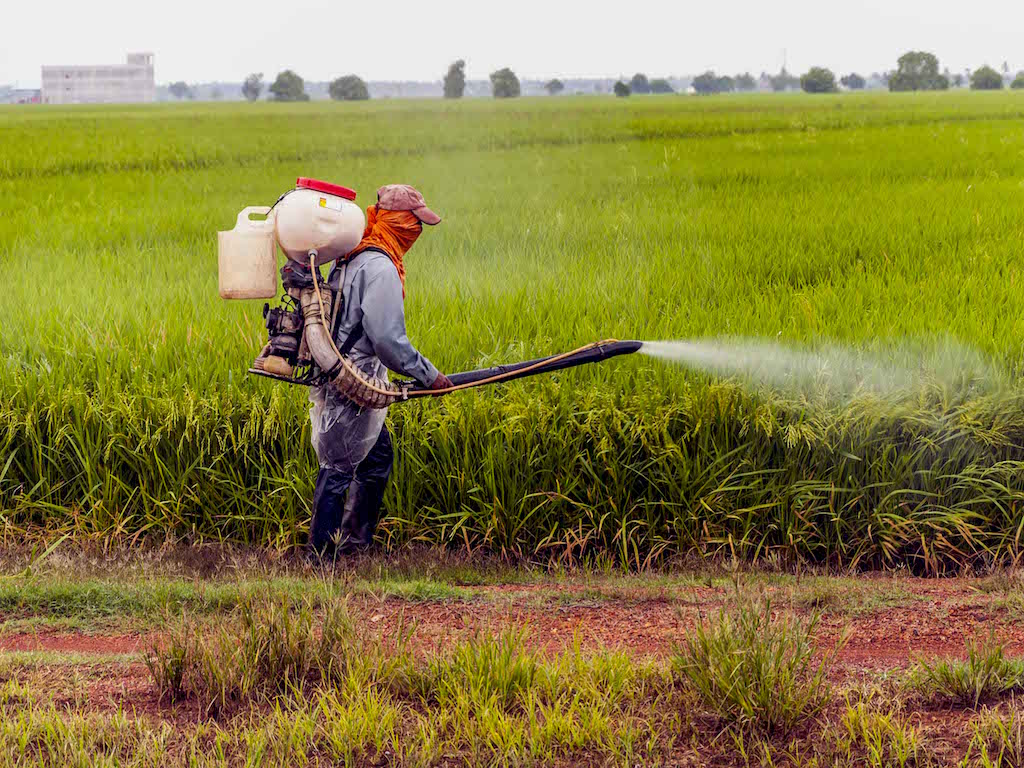3 Mins Read
Following the Thai government’s decision to ban a series of toxic farming chemicals, the Trump administration is pressuring Thailand to exempt three harmful pesticides that have been scientifically linked to serious health problems and diseases among children and vulnerable populations. Under the new law in Thailand, as of 1st December, a ban will take effect on the use of three pesticides developed and popularised by American agrochemical multinationals: Dow Chemical’s chlorpyrifos, Syngeta’s paraquat and Monsanto’s glyphosate. The Trump administration’s move to try and pressure the Thai authorities to do otherwise is again a demonstration of putting profits over people.
From the 1st December onwards, Thailand will outlaw the use of three farming pesticides manufactured and popularised by American agricultural chemical giants. These include: chlorpyrifos, an insecticide developed by Dow Chemical (but no longer produced by the Dow) that has been linked to brain damage in babies; paraquat by Syngenta, a type of herbicide (plant killer) connected to Parkinson’s disease and has been banned in Europe since 2007; and a cancer-associated herbicide called glyphosate, developed by Monsanto.
This decision was prompted by the national hazardous substances committee, who voted last month to ban all three pesticides after scientific studies have established the dangers to human health. These three agrochemicals have not only been linked to these health dangers, putting farmers and workers at risk, but also poses huge problems for consumers who are ingesting residues that persist in fresh produce. The move brings the country in line with other nation-states in Europe, Middle East and South America that have already placed outright bans, or are currently considering to do so.
READ: Indian Farmers Defy Monsanto & Switch Back To Native Cotton Seeds
With huge lobbying and pressure group power in Washington, these three corporate giants have managed to push the Trump administration to speak out against the ban. According to local Thai news reports, US officials have been warning that Thailand’s ban will upset the money-making trade. In other words, they are worried that the ban will cut profits made at the expense of the health of people in other countries. They are particularly concerned about the ban on glyphosate, which could limit the import of US grains, which are often grown with glyphosate and contain high amounts of residues. An FDA report in September 2019 revealed pesticide-use is so common in US-produced food that more than 84% of domestic fruits and 42% of grains were laced with residues.
In response to the pressure, Thai authorities have reiterated their priorities to their people. Thailand’s public health minister Anutin Charvinrakul told Reuters during a press conference that “our job is to take care of the people’s health.”
Trump’s administration is also blocking domestic groups that seek to ban the use of toxic chemicals in agriculture. When Trump came into office, the Environmental Protection Agency (EPA) chose to delay any action on banning chlorpyrifos, which was scheduled to be banned in the country over two years ago.
READ: Dutch Study Finds Organic Agriculture Can Help Achieve UN SDGs
Unlike their American counterparts, Thai authorities are putting people first. With mounting scientific concerns about the impact of these pesticides on human health, governments have a duty to implement regulations to stop the greed of corporations that are willing to risk populations for profits.
Lead image courtesy of Pure Prescriptions.




